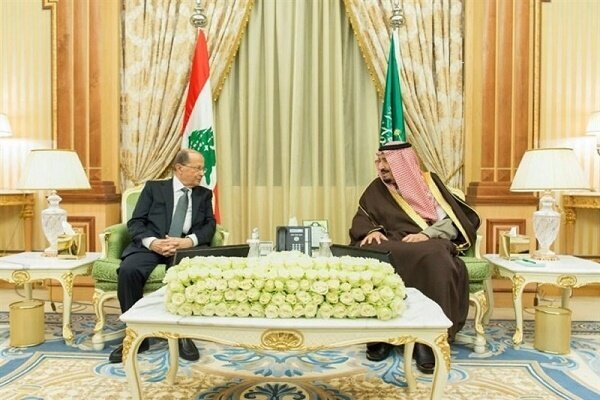Hezbollah is the main target of Riyadh's ban on Lebanon

Tehran - Riyadh has kicked off a series of widespread economic pressures on Beirut to push the Lebanese government to exclude Hezbollah from the country's political and military scene.
Saudi officials announced on Friday an indefinite ban on Lebanese agricultural products under the pretext of a failed attempt to smuggle 5.3 million pills of the illegal amphetamine Captagon hidden in a shipment of pomegranates at Jeddah Port.
Waleed Bukhari, the Saudi ambassador to the Republic of Lebanon, has said in a tweet the kingdom had found more than 57 million illicit pills from cash-strapped Lebanon since the beginning of 2020.
Riyadh is going to prevent Lebanese vegetables from entering or passing through Saudi Arabia.
The move has provoked reactions inside Lebanon. Lebanon's caretaker Prime Minister Hassan Diab, reacted to the Saudi ban on his country, saying that "Lebanon and the Lebanese people do not want to irritate the Saudi brothers. We want the best relations with Saudi Arabia. We support Saudi Arabia in fighting the smuggling networks and their perpetrators."
Furthermore, Lebanese President Michel Aoun commented on the Saudi ban on Lebanon. "It is important for us to maintain economic cooperation with Saudi Arabia, and we are working today to explain the existing ambiguities and return to the right stance."
But many experts say that Saudi Arabia and the Persian Gulf states are well aware that banning the import of Lebanese crops does not prevent drug trafficking.
This is an unjust decision in the eyes of Lebanese farmers and agriculture workers who are astonished that a country like Saudi Arabia has made such a hasty and unstudied decision.
Lebanon is concerned about other countries' intention to follow Riyadh's decision, endorsed by Bahrain, Kuwait, Oman, and the United Arab Emirates.
Lebanese farmers and the agricultural sector are facing an immense tragedy as every farmer is going to yield less and earn less.
According to Aljazeera, various estimates say the Lebanese fruit and vegetable trade is worth between $20m and $34m annually.
Although Saudi Arabia's sanction against Lebanon has caused controversy in the country's agricultural sector and among farmers, it seems that Riyadh is exploiting the story of smuggling only as a pretext to put pressure on Hezbollah.
Indeed, this is an attempt to cover up the actual dimensions of Riyadh's policies against Beirut.
The Saudis are aware that Lebanon is living through a severe economic crisis at the moment. They (the Saudis) became convinced of this a while ago after Hassan Diab's remarks about the deterioration of the economic conditions in Lebanon. Then, they have made every effort to achieve their political goals through a package of economic pressure on Lebanese people.
Arab political observers believe that Saudi Arabia tries to tighten the siege on Lebanon, a move encouraged by the United States and the Zionist regime to keep the Lebanese people hungry and lead the country to a civil war.
So, it seems quite clear that the primary goal of Saudi Arabia in banning the import of fruits and vegetables from Lebanon is to increase political pressure on a country that has lost 85 percent of its value against the U.S. dollar, pushing it into alarming inflation rates that are hamstringing farmers.
Saudi officials seek to take full advantage of the current dire economic situation in Lebanon so that the Lebanese government gives up and kneels.
One of the most critical demands of Saudi Arabia from Lebanon is to exclude Hezbollah from the country's political structure.
This is a demand that the Saudis have made from Lebanese officials for at least over a decade.
Indeed, Saudi Arabia has always been a staunch opponent of Hezbollah's role in Lebanon's political scene and system. Now, the Saudis who never miss the opportunity to apply their agenda against Hezbollah are trying to fish in troubled waters and make their old dreams come true.
Marginalize Hezbollah through spreading dissent in the country, because in their eyes, Lebanon as a whole must pay the price for hosting the resistance axis and defending Palestine's cause.
